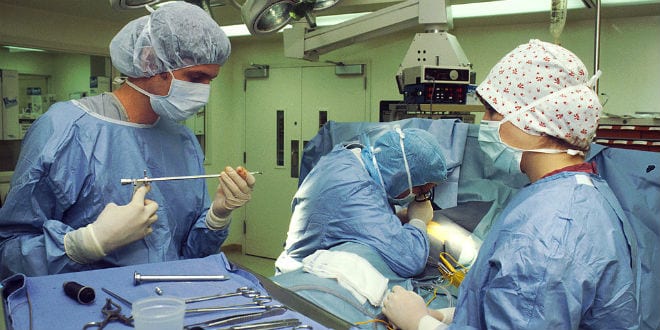Bacteria – small single-celled organisms found almost everywhere on Earth that are vital to the Earth’s ecosystems and may live even under extreme conditions of temperature and pressure – have been given a bad name because some cause disease.
In fact, the human body is packed with bacteria, and in fact, there are probably more bacterial cells than human cells. We could not survive without all the bacteria living on and inside us, as they function as part of our immune systems, digest foods that we cannot break down ourselves (via the gut microbiome) and provide us with nutrients and minerals that we need to survive.
Now, thanks to scientists at the Weizmann Institute of Technology in Rehovot and colleagues, cancer immunotherapy may get a boost from bacteria living inside tumor cells. In a new study published in the prestigious journal Nature, researchers at the Weizmann Institute of Science headed by Prof. Yardena Samuels of the molecular cell biology department have discovered that the immune system “sees” these bacteria. They have discovered that the bacteria can be harnessed to provoke an immune reaction against the tumor. The research may also help clarify the connection between immunotherapy and the gut microbiome, explaining the findings of previous research that the microbiome affects the success of immunotherapy.
Immunotherapy treatments of the past decade or so have dramatically improved recovery rates from certain cancers, particularly the skin tumor malignant melanoma. However, in this cancer, they still succeed in only about 40% of the cases. Samuels and her colleagues study molecular “signposts” – protein fragments called peptides on the cell surface – that mark cancer cells as foreign and may therefore serve as potential added targets for immunotherapy. In the new study, the team extended their search for new cancer signposts to those bacteria known to colonize tumors.
Using methods developed by departmental colleague Dr. Ravid Straussman, who was one of the first to reveal the nature of the bacterial “guests” in cancer cells, Samuels and her team – led by Dr. Shelly Kalaora and Adi Nagler – analyzed tissue samples from 17 metastatic melanoma tumors derived from nine patients. They obtained bacterial genomic profiles of these tumors and then applied an approach known as HLA-peptidomics to identify tumor peptides that can be recognized by the immune system.
The HLA peptidomics analysis revealed nearly 300 peptides from 41 different bacteria on the surface of the melanoma cells. The pivotal new finding was that the peptides were displayed on the cancer cell surfaces by HLA protein complexes that are present on the membranes of all cells in our body and play a role in regulating the immune response.
One of the HLA’s tasks is to sound an alarm about anything that’s foreign by “presenting” foreign peptides to the immune system so that immune T cells can “see” them. “Using HLA peptidomics, we were able to reveal the HLA-presented peptides of the tumor in an unbiased manner,” explained Kalaora. “This method has already enabled us in the past to identify tumor antigens that have shown promising results in clinical trials.”
It isn’t clear why cancer cells should perform a seemingly suicidal act of this kind – presenting bacterial peptides to the immune system, which can respond by destroying these cells. But whatever the reason, the fact that malignant cells do display these peptides in such a manner reveals an entirely new type of interaction between the immune system and the tumor.
This discovery provides a potential explanation for how the gut microbiome affects immunotherapy. Some of the bacteria the team identified were known gut microbes. The presentation of the bacterial peptides on the surface of tumor cells is likely to play a role in the immune response, and future studies may establish which bacterial peptides enhance that immune response, enabling physicians to predict the success of immunotherapy and to tailor a personalized treatment.
In addition, the fact that bacterial peptides on tumor cells are visible to the immune system can be exploited for enhancing immunotherapy. “Many of these peptides were shared by different metastases from the same patient or by tumors from different patients, which suggests that they have a therapeutic potential and a potent ability to produce immune activation,” Nagler said.
In a series of continuing experiments, Samuels and her team incubated T cells from melanoma patients in a laboratory dish together with bacterial peptides derived from tumor cells of the same patient. The result was that the T cells were activated specifically toward the bacterial peptides.
“Our findings suggest that bacterial peptides presented on tumor cells can serve as potential targets for immunotherapy,” Samuels concluded. “They may be exploited to help immune T cells recognize the tumor with greater precision, so that these cells can mount a better attack against the cancer. This approach can in the future be used in combination with existing immunotherapy drugs.”
The shortcode is missing a valid Donation Form ID attribute.



